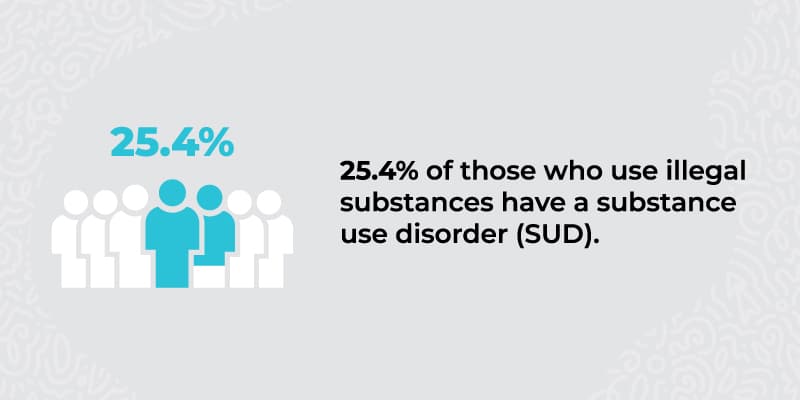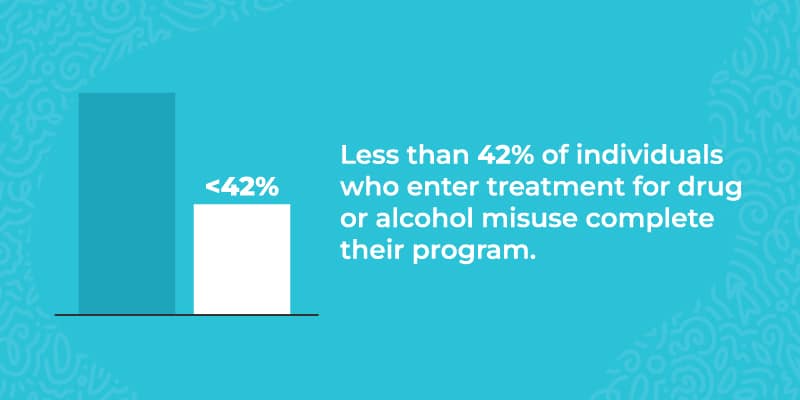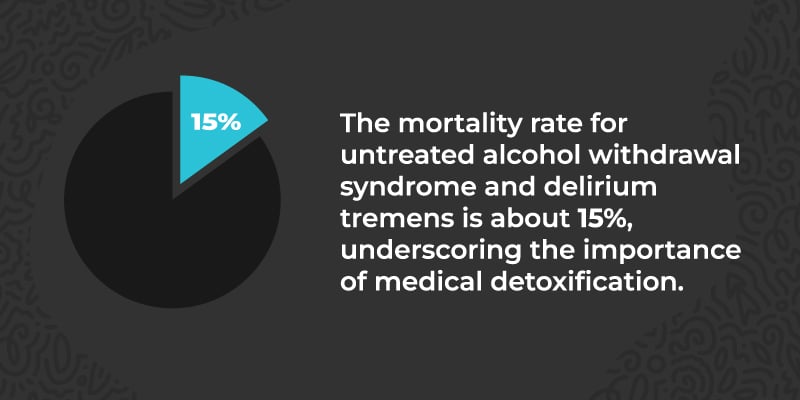Experience Safe and Comfortable Medical Detox at Vista Taos Renewal Center

What is Medical Detox?
Medical Detox at Vista Taos
What Happens During Detox?
During a detox, healthcare professionals track vital signs and provide medications. This helps to reduce withdrawal symptoms.
The aim of detox is to help individuals get through withdrawal in a safe and comfortable way.
Detox is Only the First Step to Recovery
How is Detox Conducted?
Signs and Symptoms of Withdrawal
- The substance used
- The length and severity of use
- The individual’s health
Common Symptoms of Withdrawal
- Nausea and vomiting
- Sweating and chills
- Tremors and seizures
- Headaches and dizziness
- Muscle and joint pain
- Insomnia and fatigue
- Anxiety and irritability
- Depression and mood swings
- Loss of appetite
- Difficulty concentrating and thinking clearly
Detox Can Be Challenging
Risks Of Medical Detox
- Adverse reactions to medications used during the detox process
- Complications from underlying medical conditions
- Dehydration, which can occur due to sweating, vomiting, and diarrhea
- Electrolyte imbalances, which can be caused by dehydration
- Complications such as seizures and heart rhythm disturbances
- Severe withdrawal symptoms that are difficult to manage
- Relapse due to incomplete detoxification or lack of follow-up treatment
- Mental health issues, such as depression or anxiety
- Potential for drug interactions or complications if a person is detoxing from many substances
During medical detox, healthcare professionals can help reduce the risks involved in this process.
Here are some ways to reduce the risks associated with detox:5
Seek Help
Keep Providers in the Loop
Stay Hydrated
Use Medications Properly
Practice Self-Care
- Getting enough rest
- Engaging in gentle exercise
- Avoiding stressors
Attend Treatment and Counseling
Gradually Stop Medication
Choose an Appropriate Detox Program
By taking these steps, you can help reduce the risks associated with detox and improve your chances of a successful recovery.
Vista Taos offers programs that specialize in detoxing from a variety of substances.

How Long Does a Medical Detox Take?
The Substance Being Detoxed From
The Severity of the Addiction
The Individual's Physical Health
The Individual's Detox History
The Method of Detox
The Level of Support and Aftercare Available
Withdrawal Symptoms by Substance
Opioids
- Nausea
- Vomiting
- Diarrhea
- Muscle aches
- Anxiety
A Closer Look at Opioid Withdrawal
Alcohol
- Tremors
- Seizures
- Vomiting
- Diarrhea
- Hallucinations
- Delirium tremens (DTs)
A Closer Look at Delirium Tremens
Benzodiazepines
- Anxiety
- Insomnia
- Tremors
- Seizures
Stimulants
- Fatigue
- Depression
- Thoughts of suicide
- Intense cravings
Cannabis
- Irritability
- Insomnia
- Anxiety
The Withdrawal Process Looks Different for Everyone
Medical Detox vs. At-Home Detox
Supervision
Medications
Risk of Complications
Comfort
Cost
At-Home Detox is Risky

When to Consider Medical Detox
Reasons to Pursue Medical Detox
Other Signs You May Need Medical Detox
- You have a history of severe withdrawal symptoms, such as seizures or delirium tremens (DTs).
- You have a co-occurring medical condition that could be exacerbated by withdrawal.
- You have been using drugs or alcohol for a long time or at high doses.
- You have previously tried to detox at home and were unsuccessful or experienced complications.
- You are detoxing from a substance that can cause life-threatening complications, such as alcohol or benzodiazepines.
- You are detoxing from many substances at once.
- You have a history of relapse.
Why Medical Detox is an Important Step in Recovery
Safe and Supportive Environment
Use of Medications
Medication-Assisted Treatment (MAT)
Stabilization
Allows for Further Treatment
Relapse Prevention
Important First Step in the Recovery Process

The Importance of Aftercare
Is Aftercare Important in Recovery?
Why is Aftercare Important?
Preventing Relapse
Continued Support
- Individual counseling
- Group therapy
- Support groups like AA or NA
Addressing Underlying Issues
- Mental health disorders
- Trauma
- Relationship issues
Continued Learning
Accountability
Building a Support Network
Improving Well-Being

How Can Vista Taos Help with Medical Detox and Sustainable Recovery?
Vista Taos is a treatment center that specializes in the treatment of addiction and co-occurring disorders. At Vista Taos, we provide a holistic approach to medical detox and sustainable recovery.
Below are some ways that Vista Taos can help you overcome your addiction.
Medical Supervision
Vista Taos offers medically supervised detoxification services to ensure that individuals detox safely and comfortably.
Our detox program is a 6 to 10-day healing process individualized to fit your needs.
Personalized Treatment
"At Vista Taos, we start by conducting thorough assessments to gain insights into each person's physical, emotional, and spiritual well-being. Based on these assessments, we collaborate closely with the patient to design a personalized treatment plan that integrates holistic modalities. We continuously monitor progress and adjust the plan as necessary to ensure that it meets the evolving needs and preferences of the individual. By prioritizing customization and flexibility, we empower our patients to actively engage in their healing journey and achieve lasting wellness."
Evidence-Based Treatment
Holistic Treatment Approach
"At Vista Taos, we believe that holistic treatment approaches play a vital role in complementing traditional mental health therapies. By integrating methods such as mindfulness, yoga, nutritional therapy, and art therapy alongside evidence-based practices like psychotherapy, we offer a comprehensive approach to healing. This holistic approach addresses the interconnectedness of mind, body, and spirit, allowing us to better support our clients in achieving lasting recovery and overall well-being. Our goal is to empower individuals to cultivate resilience and self-awareness, fostering a deeper understanding of themselves and their mental health journey."
Family Involvement
Aftercare
Contact Vista Taos Today
At Vista Taos, we combine our medical expertise, a healing environment, and holistic services to help you achieve lasting recovery.
For more information about our programs, contact us today at 575.758.5858 or reach out online.
We’re excited to help you thrive.
Resources
- https://www.psychologytoday.com/us/basics/medical-detox
- https://drugabusestatistics.org/
- https://www.healthdirect.gov.au/addiction-withdrawal-symptoms
- https://www.ncbi.nlm.nih.gov/books/NBK64119/
- https://www.ncbi.nlm.nih.gov/books/NBK310652/
- https://www.verywellmind.com/how-long-does-it-take-to-detox-from-alcohol-other-substances-5524675
- https://www.mind.org.uk/information-support/drugs-and-treatments/medication/explaining-the-half-life/
- https://www.verywellmind.com/what-is-withdrawal-how-long-does-it-last-63036
- https://www.goodrx.com/conditions/alcohol-use-disorder/alcohol-detox-at-home
- https://www.samhsa.gov/data/sites/default/files/reports/rpt35314/2019_TEDS_Proof.pdf
- https://www.ncbi.nlm.nih.gov/pmc/articles/PMC2670779/
- https://pubmed.ncbi.nlm.nih.gov/11327187/




